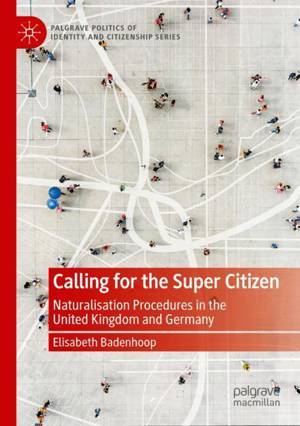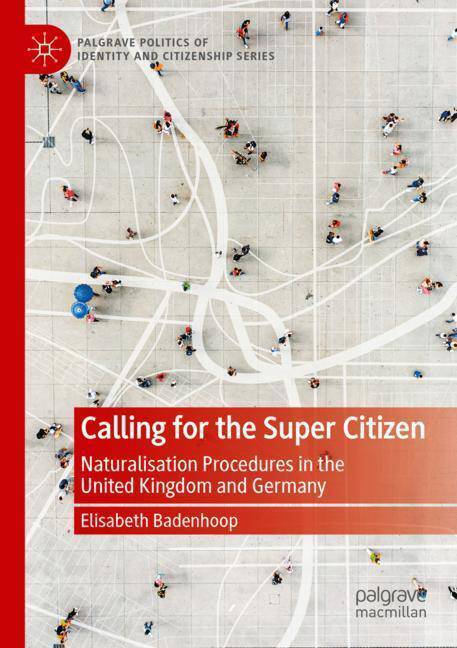
- Afhalen na 1 uur in een winkel met voorraad
- In januari gratis thuislevering in België
- Ruim aanbod met 7 miljoen producten
- Afhalen na 1 uur in een winkel met voorraad
- In januari gratis thuislevering in België
- Ruim aanbod met 7 miljoen producten
Calling for the Super Citizen
Naturalisation Procedures in the United Kingdom and Germany
Elisabeth BadenhoopOmschrijving
This book offers the first empirical and holistic analysis of the design, implementation and effects of the new naturalisation regimes in the United Kingdom and Germany introduced in the 2000s. Based on a multi-sited state ethnography, it uniquely compares the law on the books, the local administration, and the lived experiences of citizenship tests, courses, and ceremonies from an interdisciplinary social science perspective.
The book argues that naturalisation procedures in both countries suggest to migrants to constantly optimise themselves in the state's interests toward the subjectivity of the "Super Citizen" - a political, economic, and cultural asset to the liberal-democratic, capitalist nation-state. The concept of the Super Citizen enables us to highlight and criticise the overburdening expectations toward citizens by application as opposed to citizens by birth. The analysis reveals that the self-presentation of Britain and Germany as liberal and meritocratic politiesis in stark contrast to migrants' lived experiences of the naturalisation process.
By shedding light on naturalisation policies' efficacy, this book is aimed at students and scholars in sociology, politics, law, anthropology, and education, as well as policy-makers in the areas of citizenship and migration.
Specificaties
Betrokkenen
- Auteur(s):
- Uitgeverij:
Inhoud
- Aantal bladzijden:
- 232
- Taal:
- Engels
- Reeks:
Eigenschappen
- Productcode (EAN):
- 9783031342622
- Verschijningsdatum:
- 19/08/2024
- Uitvoering:
- Paperback
- Afmetingen:
- 148 mm x 13 mm
- Gewicht:
- 326 g

Alleen bij Standaard Boekhandel
Beoordelingen
We publiceren alleen reviews die voldoen aan de voorwaarden voor reviews. Bekijk onze voorwaarden voor reviews.









